Home » Jazz Articles » Interview » Jimmy Scott: Across the Universe
Jimmy Scott: Across the Universe
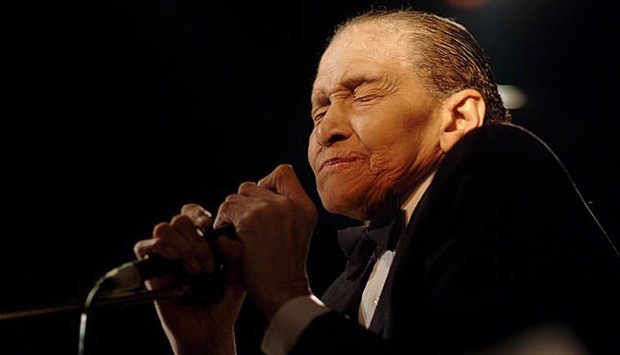
Study the material that you want to sing. Know what the story is in the material, so that you can portray it in your song
Now 86, Scott has seen more ups and downs than an investment banker. Born into a large family in Cleveland, he saw his mother injured in a fatal car accident when he was just 13. He turned inward, to an intense and intimate relationship with singing, in response. In his early teenage years, Scott learned he had Kallmann's Syndrome, a genetic disorder that affects the hypothalamus and as a result kept him from going through puberty. His voice would remain high and elusive, a bird quivering and luxuriating in each song's lyrics and beat. In David Ritz's Faith in Time: The Life of Jimmy Scott (De Capo Press, 2002),

Ruth Brown
vocals1928 - 2006
 "We'd already known we were witnessing the start of a genius generation," Brown continued. "
"We'd already known we were witnessing the start of a genius generation," Brown continued. "
Charlie Parker
saxophone, alto1920 - 1955

Dizzy Gillespie
trumpet1917 - 1993

Dinah Washington
vocals1924 - 1963

Sarah Vaughan
vocals1924 - 1990
Scott fluttered between the jazz scenes in Cleveland, Newark, New York, and elsewhere, and caught his first big break in 1948 when he was hired by

Lionel Hampton
vibraphone1908 - 2002

Illinois Jacquet
saxophone, tenor1922 - 2004

Johnny Griffin
saxophone, tenor1928 - 2008

Billie Holiday
vocals1915 - 1959
But even though Scott's balladry strongly influenced Marvin Gaye,

Michael Jackson
vocals1958 - 2009

Nancy Wilson
vocals1937 - 2018

Tony Bennett
vocals1926 - 2023
Thanks to legal machinations by Savoy Records owner Herman Lubinsky, who claimed to hold Scott's rights through some long-forgotten document, his two finest albums weren't released until years after they were recorded: 1962's Falling in Love is Wonderful (Rhino), with

Ray Charles
piano and vocals1930 - 2004

Ron Carter
bassb.1937

David "Fathead" Newman
saxophone, tenor1933 - 2009

Billy Butler
pianob.1971
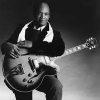
Eric Gale
guitar, electric1938 - 1994

Junior Mance
piano1928 - 2021
He resurfaced almost inexplicably in 1992, with Carter and Newman once more on hand for All the Way (Sire). 1995's Dream (Warner Bros.) featured soloist
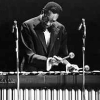
Milt Jackson
vibraphone1923 - 1999
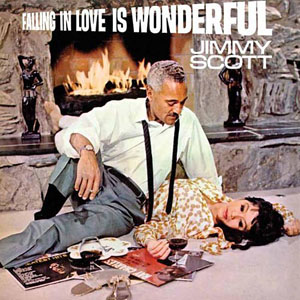 More recently, Scott and producer Todd Barkan launched a quartet of albums for Milestone Records: Mood Indigo (2000); Over the Rainbow (2001); But Beautiful (2002), which opens with a heart-stopping rendering of "You Don't Know What Love Is" arranged by pianist
More recently, Scott and producer Todd Barkan launched a quartet of albums for Milestone Records: Mood Indigo (2000); Over the Rainbow (2001); But Beautiful (2002), which opens with a heart-stopping rendering of "You Don't Know What Love Is" arranged by pianist 
Renee Rosnes
pianob.1962

Percy Mayfield
vocals1920 - 1984

Cyrus Chestnut
pianob.1963

Joe Beck
guitar1945 - 2008

Wynton Marsalis
trumpetb.1961
Through it all, Jimmy Scott simply continues to bare his soul through his voice.
All About Jazz: You will be performing in the UK in October (2011). Where will you be performing and for how many shows? Who will be accompanying you?
Jimmy Scott: So far, I'll be performing at St. Stephens Hall in Hampstead for two concerts on October 15 and October 16 with my band, " data-original-title="" title="">The Jazz Expressions, directed by

Hilliard Greene
bassb.1958

Alex Minasian
pianob.1984

T.K. Blue
saxophone, tenor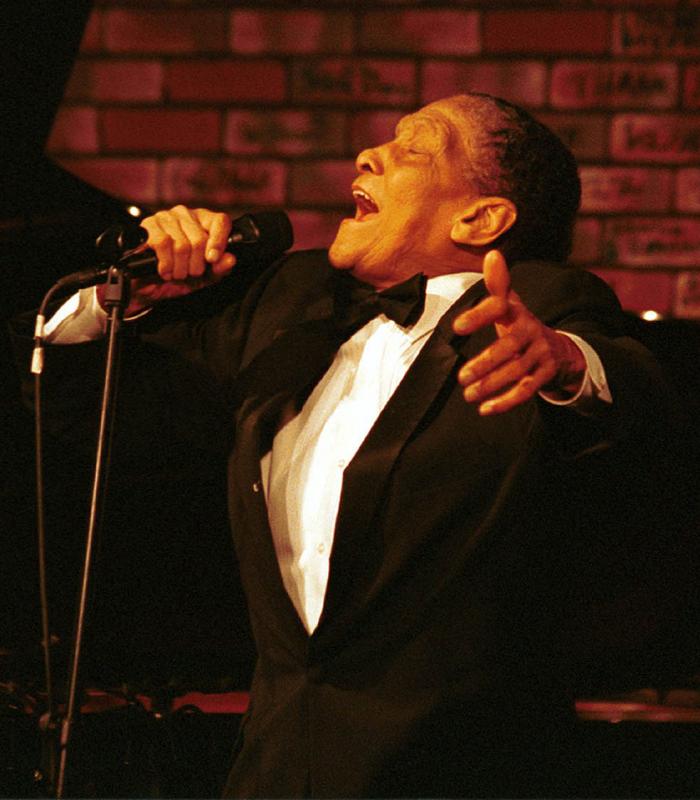 AAJ: Have you ever performed in the UK before, or is this the first time?
AAJ: Have you ever performed in the UK before, or is this the first time? JS: Yes, I've performed there many times. May 2007 was my last performance in the UK. I performed at

Ronnie Scott
saxophone, tenor1927 - 1996
AAJ: Most discographies show your last album release as Moon Glow in 2003. What have you been doing in the time since passed?
JS: We've just completed an album that is scheduled for release in the fall. It is a dedication to my wife to thank her for her loyalty. It's about our love for each other. The music pertains to our lives together. It features jazz masters like

James Moody
woodwinds1925 - 2010

Kenny Barron
pianob.1943
Jeanie Scott: It was recorded in June 2009. The original conception and hook to it, songs that Jimmy and I had picked out over the years that we wanted him to eventually do because they related to different incidents in our relationship, led us to give it the title I Remember You. There was a documentary filmed about the recording, to support it, and we believe they'll both be released simultaneously in the fall. There are some other guest artists on it too, like Joe Pesci and

Dee Dee Bridgewater
vocalsb.1950

Patti Austin
vocalsb.1948

Terry Gibbs
vibraphoneb.1924
AAJ: Few singers can render tender and fragile emotion like

Chet Baker
trumpet and vocals1929 - 1988
JS: I respected Chet's singing always. My wife and I both listen to his old recordings, those that we can find. I thought and think he is one of the greats.
AAJ: What jazz musicians play(ed) in an instrumental style that most reminds you of your own vocal style?
JS:

Lester Young
saxophone1909 - 1959
AAJ: When you're all by yourself and feeling blue, what are your two or three favorite songs to sing?
JS: "When Did You Leave Heaven?" "Motherless Child" and "My Mother's Eyes." When I feel lonely, they come to my mind.
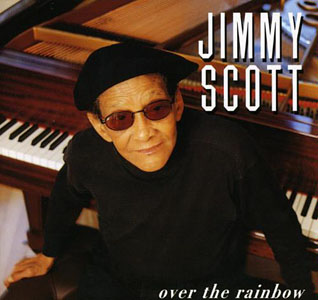 AAJ: Having listened to you,
AAJ: Having listened to you, 
Nancy Wilson
vocals1937 - 2018
JS: Oh, good. Yeah, that's my honey. That's my little honey. She's quite an artist, yes, she is.
AAJ: Are there singers that you find yourself returning to and listening to over and over again?
JS: Many, many singers. One is Ray Charles, of course, and

Billy Eckstine
vocals1914 - 1993

Big Maybelle
vocals1924 - 1972
AAJ: Dinah Washington did some famous, and excellent, duets with

Brook Benton
vocals1931 - 1988
JS: Not until the new, upcoming album. Joe Pesci came by while we were preparing it, and he sang a number or two with me. Dee Dee Bridgewater is on it too. Most people couldn't believe that Joe can sing like he sings. He's got a hell of a beautiful voice, and he's a good singer, yes he is.
AAJ: Another singer we really should ask you about is the powerful

Nina Simone
piano and vocals1933 - 2003
JS: No, I hadn't. Never. And I would have loved to, had I had that opportunity. Unfortunately, life didn't let that happen.
AAJ: There's such a powerful emotional undertow to so much of your music. Are you a spiritual person?
JS: Am I a religious person? Yes.
AAJ: How do you get that to come out through yourself and into your music?
 JS: Hey, I mean, this is you! You're singing, or you're doing your act, or whatever it is, if it's in you, it's going to come out of you. I was raised in a religious family. My mother was the most spiritual person I've ever met: God came first. Then we came after. And she lived like that with us and she taught those things to us.
JS: Hey, I mean, this is you! You're singing, or you're doing your act, or whatever it is, if it's in you, it's going to come out of you. I was raised in a religious family. My mother was the most spiritual person I've ever met: God came first. Then we came after. And she lived like that with us and she taught those things to us.AAJ: You come from a large family. What advice would you give to a young couple just starting their own family?
JS: First of all, they must be faithful to each other and support each other in what they're doing. If they're struggling together, they have to support each other to advance and become successful in their marriage. Yeah, that's what I would say to them: Be faithful to each other and support each other.
AAJ: What advice would you give to a young singer just starting out?
JS: I would say, study the material that you want to sing. Know what the story is in the material, so that you can portray it in your song. A lot of singers don't think of that as an important issue, but it is.

AAJ: Is there any difference between singing the blues and singing jazz?
JS: No. They are both about life. Both have a depth in life. If you're singing it, you realize, "Oh, I've seen that somewhere," or, "Oh, I've been through that," and you realize it has been lived before. We recognize it as life.
AAJ: Finally, what message would you like to deliver to all your fans and supporters?
JS: All I can tell you is thank you all for being supportive in my life. Those of you who have supported any part of my life: My God, I must say thank you, and thank you, and thank you.
Selected Discography
Little Jimmy Scott, Falling in Love is Wonderful (Rhino, 2002)
Little Jimmy Scott, But Beautiful (Milestone, 2002)
Jimmy Scott, Mood Indigo (Milestone, 2000)
Little Jimmy Scott, Everybody's Somebody's Fool (Verve, 1999)
Little Jimmy Scott, Dream (Warner Bros., 1995)
Jimmy Scott, All the Way (Sire, 1992)
Photo Credits
Page 1: Clay Walker
Page 2: Hiroshi Nishikawa
Page 3: Courtesy of Jimmy Scott
Tags
Comments
PREVIOUS / NEXT
Support All About Jazz
 All About Jazz has been a pillar of jazz since 1995, championing it as an art form and, more importantly, supporting the musicians who make it. Our enduring commitment has made "AAJ" one of the most culturally important websites of its kind, read by hundreds of thousands of fans, musicians and industry figures every month.
All About Jazz has been a pillar of jazz since 1995, championing it as an art form and, more importantly, supporting the musicians who make it. Our enduring commitment has made "AAJ" one of the most culturally important websites of its kind, read by hundreds of thousands of fans, musicians and industry figures every month.






 Buy Now
Buy Now






















